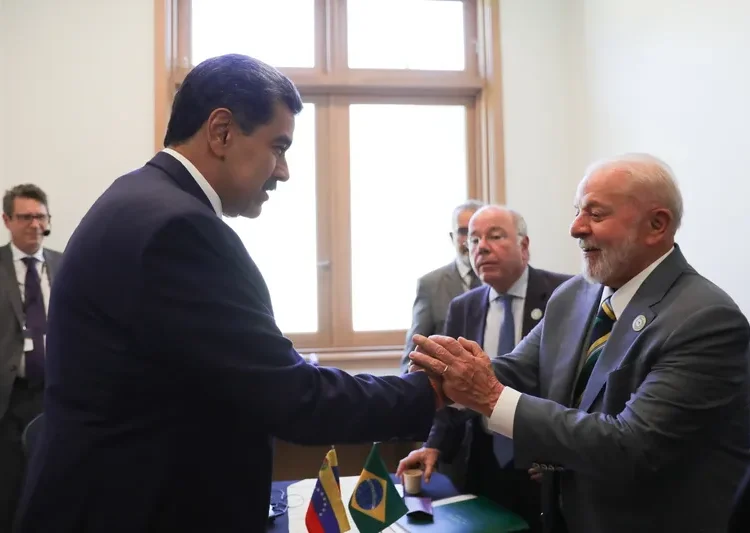On Friday (01), President Luiz Inácio Lula da Silva met Venezuelan President Nicolás Maduro following the 8th Summit of the Community of Latin American and Caribbean States (8th Celac Summit) in Saint Vincent and the Grenadines. None of the two leaders talked to the press after the meeting but they took photos together.
In an official statement, the Venezuelan government said the two presidents discussed technical cooperation between Venezuela and Brazil in different sectors and signed two memorandums of understanding: one aimed at agrarian production to “deep exchanges in agriculture, animal raising, food and nutritional sovereignty" and another to the supervision of the bilateral cooperation program between Brazil and Venezuela.
Lula and Maduro reinforce the goal of deepening economic and trade ties that, according to the document, “reached US$ 6 billion in 2013.’ There were expectations that the presidents would talk about the Essequibo dispute and elections in Venezuela.
That was the second meeting between the two Latin American presidents since Lula’s inauguration ceremony in January 2023. In May last year, Lula received Maduro in Brasília, Brazil’s capital city. On the occasion, the Brazilian president criticized the blockade the US imposes on Venezuela and said it’s inexplicable that “a country has almost 900 sanctions only because another country doesn’t like it.”
Meeting with Guyana
The Venezuelan president also met Guyana’s president, Irfaan Ali, amidst the dispute between the two countries over Essequibo. They shook hands and exchanged gifts. Maduro used the opportunity to restate that “for the first time in a hundred years, Venezuela is producing 97% of its food.”
The short meeting marked the second time Nicolás Maduro and Irfaan Ali have met since the Venezuelan president held a referendum to claim Venezuela's sovereignty over Essequibo, which is in dispute with Guyana. Venezuelan voters approved the transformation of the Essequibo territory into a Venezuelan state.
The two leaders met in December last year to discuss the dispute over the territory. It was the first meeting between the presidents since tensions began over the claim to the border enclave. The meeting lasted around two hours and was mediated by the Community of Latin American and Caribbean States (Celac) and the Caribbean Community (Caricom).
With 160,000 km² and around 120,000 inhabitants, the Essequibo territory is on the border between Venezuela and Guyana and has been disputed since the 19th century. However, friction between Caracas and Georgetown over control of the region escalated after the discovery of large oil reserves off the Essequibo coast.
Lula’s speech
During the event, Lula asked for a Celac motion for “the immediate end of the genocide in Gaza”. According to the Brazilian president, “The humanitarian tragedy in Gaza demands the capacity of saying enough to the collective punishment the Israeli government is imposing on the Palestinian people. They are dying in lines to get food. The indifference of the international community is shocking."
During the day, Lula held meetings with Colombia's president, Gustavo Petro, and Bolivia’s president, Luis Arce. He returned to Brasília on Friday night after three days travelling through the Caribbean. Lula attended the closing ceremony of the 46th Conference of Heads of Government of the Caribbean Community (Caricom) and the Caricom Summit.
At both events, Lula condemned Israel's attacks on the Gaza Strip.




